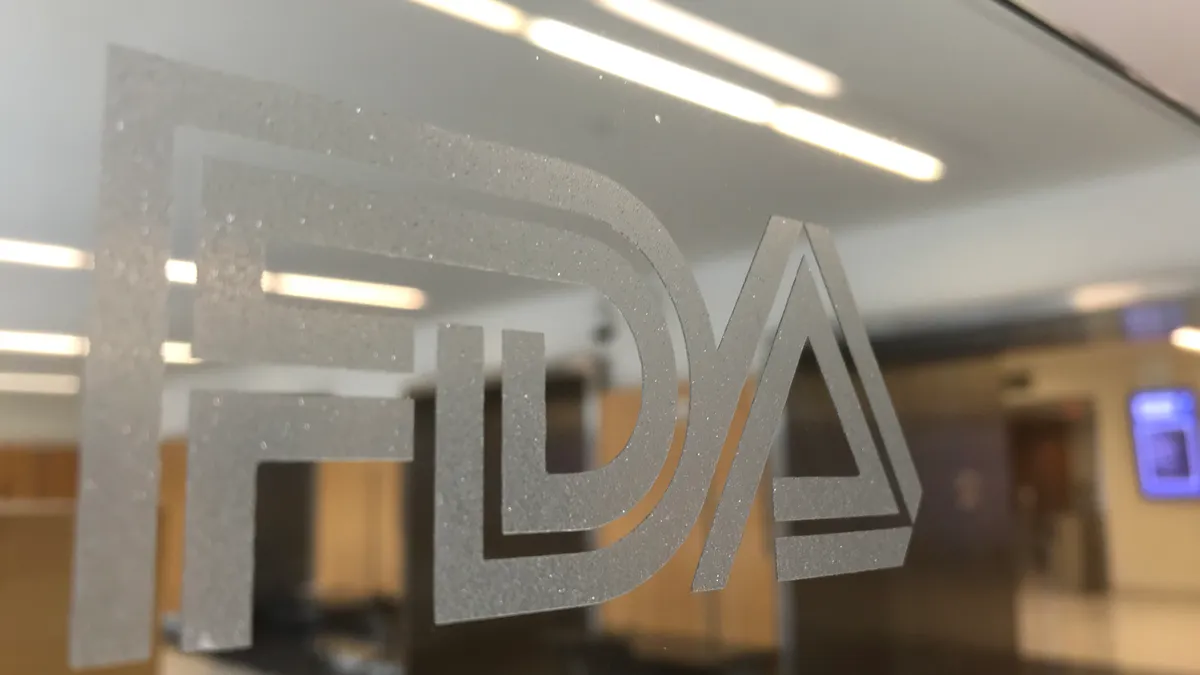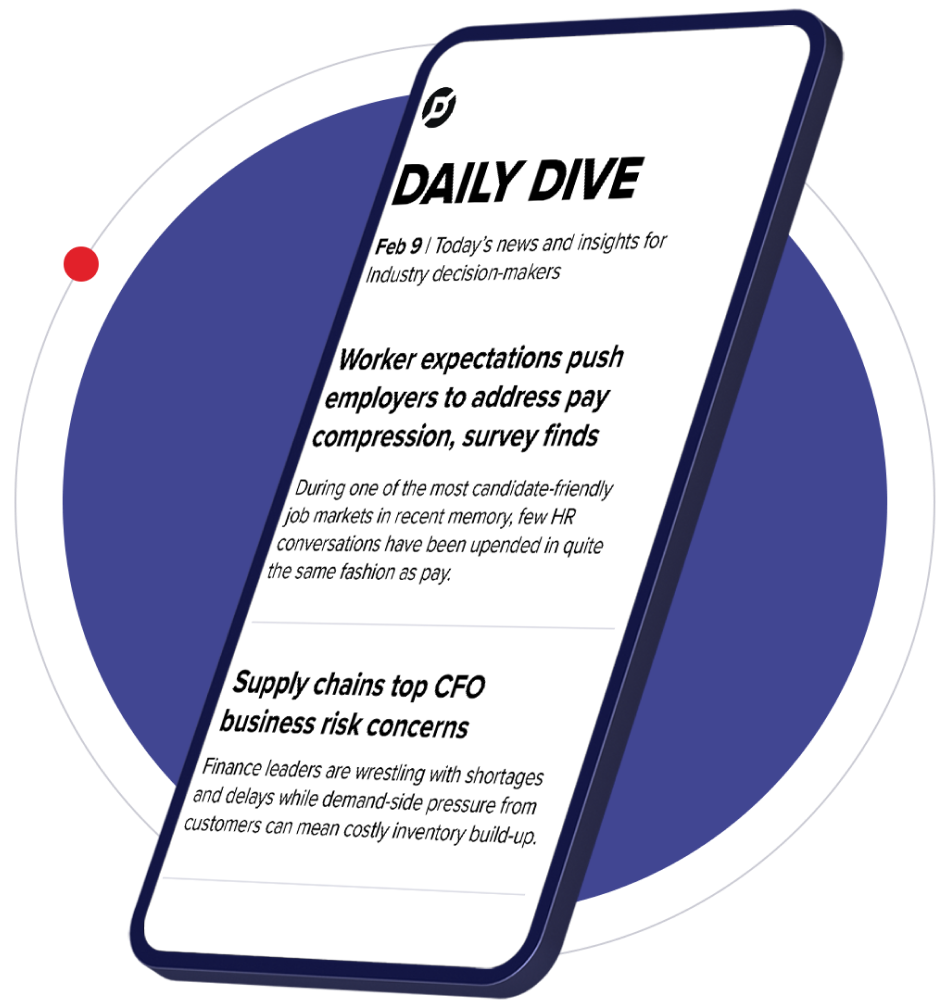Risk and Resilience: Page 56
-
Rainforest Alliance strengthens its cocoa certification program
The group said the changes will address challenges within the sector, including farmer livelihoods, child labor and deforestation.
By Cathy Siegner • Feb. 24, 2020 -
Are US railroads ready for post-coronavirus volume spikes?
Union Pacific CEO Lance Fritz said shippers need to take some responsibility for the flow of freight if they want speedy service after effects of the COVID-19 outbreak fade and China imports regain full strength.
By Emma Cosgrove • Feb. 21, 2020 -
Coronavirus: A lesson in supply chain risk management
Companies are finding workarounds as COVID-19 cases and heightened e-commerce demand continue to disrupt supply chains.
By Matt Leonard • Updated June 21, 2022 -
Coronavirus could reduce electronics and automobiles output by millions of units, research finds
While automotive or computer manufacturers are more likely to have risk management teams in place to pre-identify points of failure in a supply chain, they are still expected to take a hit.
By Matt Leonard • Feb. 20, 2020 -
Carriers report reefer, truck shortages in China's stalled supply chains
One logistics company recommended booking trucking services two days in advance as a result of the driver shortage.
By Matt Leonard • Feb. 19, 2020 -
Coronavirus-related component delays will hold up production for Trimble within weeks
Trimble keeps about two weeks of inventory on hand. A three-week freight delay out of China or continued factory slowdowns would affect sales in the near term.
By Emma Cosgrove • Feb. 18, 2020 -
Opinion
A break from trade uncertainty is a good time to future-proof your supply chain
Beijing and Washington have agreed to play nice for a while and the USMCA is almost complete, but firms shouldn’t sit back and relax, writes Lou Longo, an international consulting practice leader at Plante Moran.
By Lou Longo • Feb. 18, 2020 -
FDA tracking mask, protective gear supply chain disruptions from coronavirus outbreak
Commissioner Stephen Hahn said the shift in ordering patterns is yet to manifest in a shortage but warned Feb. 14 the situation is "evolving and very dynamic."
By Nick Paul Taylor • Feb. 18, 2020 -
Gucci shuffles inventory to minimize coronavirus impact
It's not the only retailer figuring out what the coronavirus outbreak will mean for its China-based retail operation as companies choose to close storefronts as a precaution.
By Matt Leonard • Feb. 14, 2020 -
A regional approach helps supply chains weather trade disruption: BCG
Supply chain managers might consider a regional approach that places manufacturing capabilities closer to customers to manage the current level of global trade disruption.
By Morgan Forde • Feb. 13, 2020 -
Searches for suppliers outside China double as coronavirus spreads
Dun & Bradstreet said 92% of the companies with tier one suppliers in the impacted region are based in the U.S.
By Matt Leonard • Feb. 13, 2020 -
Nestlé beverage delivery arm reaches carbon neutrality
A combination of fleet conversion, route optimization, replacement of truck trips with rail, redesigned racks, renewable energy and carbon offset projects helped ReadyRefresh achieve neutrality.
By Shefali Kapadia • Feb. 12, 2020 -
NRF: Coronavirus could cause 13% import drop at US ports
Before the outbreak, the National Retail Federation predicted February imports would be 1.54 million TEUs. The forecast has slid to 1.41 million.
By Morgan Forde • Feb. 11, 2020 -
Opinion
Supply chain managers can leverage Lunar New Year experience in coronavirus disruption
This is a time when agility in the supply chain, specifically having multiple suppliers in varying geographies, will be extraordinarily valuable, writes Nate Evans, co-founder and CXO at Fictiv.
By Nate Evans • Feb. 10, 2020 -
87% of US businesses in China expect coronavirus to impact revenue
Companies ranging from Apple suppliers to Nissan have announced plans to temporarily pause production as a result of the virus outbreak.
By Matt Leonard • Feb. 10, 2020 -
China to slash tariffs by 50% on $75B of US imports
The trade war is far from over as tariffs on billions of dollars worth of goods remain and supply chains stay on high alert.
By Shefali Kapadia • Feb. 7, 2020 -
JD Logistics deploys autonomous shuttles, drones for last-mile deliveries in coronavirus quarantine zones
The technologies minimize human contact, and JD Logistics has provided its employees in the area with masks, body suits and other emergency safety gear.
By Morgan Forde • Feb. 7, 2020 -
Trucking companies blame slow manufacturing for rough 2019 volumes
Landstar expects the weak trucking environment to continue in the coming months and said "it is difficult to predict the economic environment in the back half of 2020."
By Matt Leonard • Feb. 6, 2020 -
Hyundai, Airbus stop production as coronavirus leaves manufacturers scrambling
Two Hyundai suppliers, Kyungshin and Yura Corporation, have announced plans to increase production outside of China to make up for supply shortages and plan to resume production Sunday at their Chinese locations.
By Matt Leonard • Feb. 5, 2020 -
Owed millions, Forever 21 suppliers and lenders take aim at auction plan
Some of the retailer's biggest suppliers say the company has fallen behind on payments and worry that a quick sale process could burn them.
By Ben Unglesbee • Updated Feb. 5, 2020 -
Cummins cuts inventory by $400M anticipating truck production downturn
Private fleets are "awash in excess equipment,” according to ACT Research. Cummins' CEO said Tuesday he expects heavy-duty truck production for North America to be down 40% year-over-year in 2020.
By Emma Cosgrove • Feb. 5, 2020 -
Opinion
Learning from Adidas' Speedfactory blunder
Adidas will end its revolutionary manufacturing program this year, but that doesn't mean the principles of distributed operations should be abandoned by other players.
By Adrián Hernández • Feb. 4, 2020 -
US manufacturing recovered slightly in January but isn't out of the woods
Despite seeing the first signs of growth since July, a number of manufacturers are cautious about making investments in capital projects and hiring while the future of U.S.-China trade relations remains uncertain.
By Morgan Forde • Feb. 3, 2020 -
Mercedes-Benz taps blockchain to track emissions in cobalt supply chain
The blockchain platform aims to trace carbon emissions and help the automaker hold suppliers accountable for ethical supply chain practices.
By Morgan Forde • Feb. 3, 2020 -
Operations, trade flows halt as coronavirus spreads
Transportation in and out of Wuhan and Hubei Province is shut down, and all terminals at The Port of Wuhan have ceased operations due to a regional quarantine.
By Matt Leonard • Jan. 31, 2020




